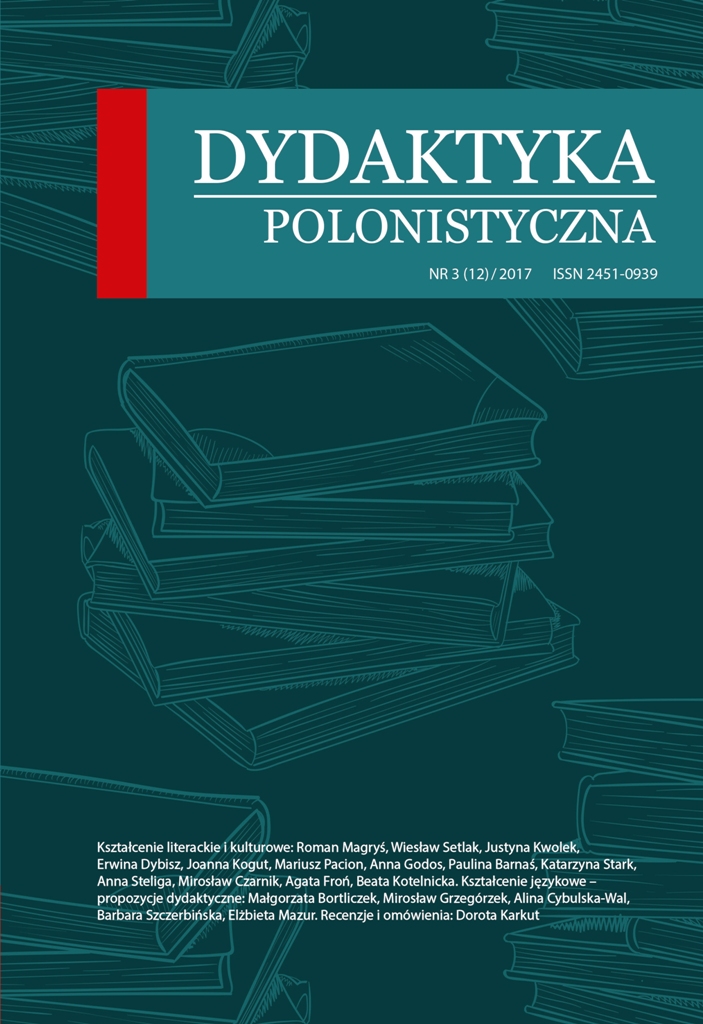Dissonance and consonance: On nature and culture in Andrzej Stasiuk’s prose
DOI:
https://doi.org/10.15584/dyd.pol.12.2017.2Keywords:
Andrzej Stasiuk, nature, culture, writer, nomad, anthropologyAbstract
Andrzej Stasiuk as an author of „travel” prose is equally strongly immersed in nature and culture. His narration is dominated by descriptions of nature. Man drawing both from nature and culture is important in his works. Stasiuk, an artist inevitably entangled in culture, sees an opportunity for self-fulfillment in nature understood as a more general notion than just natural environment. However, he does not pursue the „state of nature” – inculturation does not allow him to do it. Thus, he seeks a compromise consisting in „being” in „culture” while staying close to nature. The author’s quest resemble the struggle of a nomad roaming some geographical space for a purpose. The same thing happens when the writer tries to find a place for himself in the megaspace of nature and culture using the power of the mind and imagination. This type of activity is by geopoetics attributed to a socalled nomadological subject. It seems that the main thesis of Stasiuk’s literary anthropology is a conviction that man lives on the border of nature and culture where his existence can be authentic despite certain antagonisms. In other words, consona is possible despite dissonance. It is all about proportion. Andrzej Stasiuk in his prose seems to be close to defining this very state of affairs.Downloads
Published
2017-12-15
How to Cite
Setlak, W. (2017). Dissonance and consonance: On nature and culture
in Andrzej Stasiuk’s prose. Dydaktyka Polonistyczna, 12(3), 35–48. https://doi.org/10.15584/dyd.pol.12.2017.2
Issue
Section
LITERARY AND LANGUAGE EDUCATION


